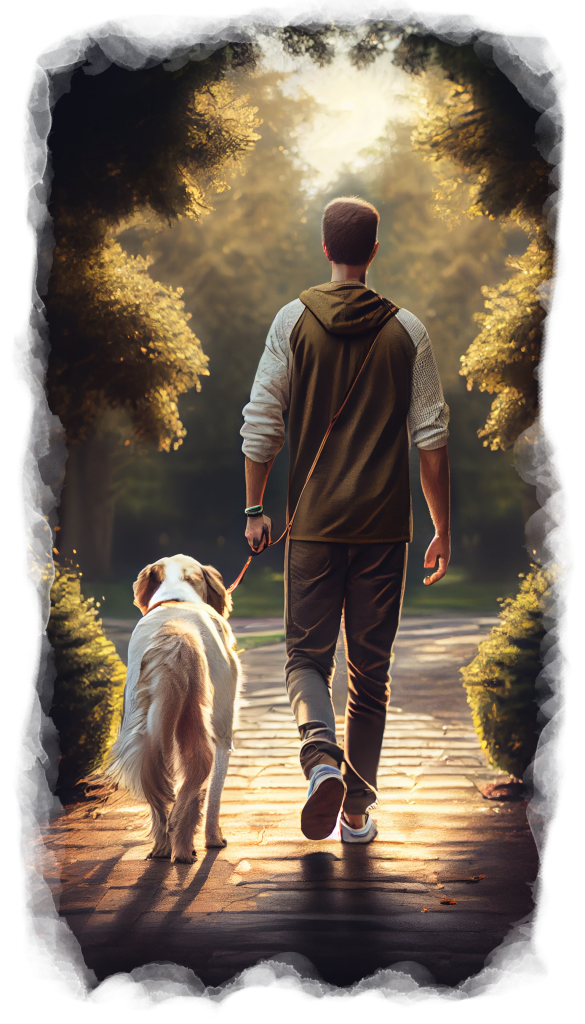Reactive Dogs

What is a reactive dog?
A reactive dog is a term used to describe a dog that overreacts to certain stimuli or situations. These stimuli could be anything from loud noises, unfamiliar people, other dogs, or even changes in their environment. Reactivity in dogs is not uncommon and can be caused by a variety of factors including genetics, lack of socialization, traumatic experiences, or anxiety.
Reactive dogs may exhibit a variety of behaviors, including barking, growling, lunging, or even biting. These behaviors are often triggered by fear or anxiety and are the dog’s way of trying to protect itself from perceived threats. These behaviors can look scary and they are often mistaken for aggressive dogs, but reactive does not mean aggressive. This is important to remember!
Why are some dogs reactive?
Reactivity can happen for a few different reasons.
It can be due to trauma that the dog has been through, inherited nervousness, medical reasons, territorial/guarding or frustration to name a few.
One potential factor that can contribute to reactivity in dogs is genetics. Some breeds are more prone to reactive behavior, such as herding breeds, terriers, and hounds. This may be due to their natural instinct to be vigilant and protective.
Environmental factors can also play a role in reactive behavior. Dogs that are not adequately socialized or exposed to new experiences during their critical socialization period (which is typically between 3 and 14 weeks of age) may be more likely to develop fear-based reactions to unfamiliar stimuli later in life.
Finally, past experiences can also contribute to reactivity in dogs. Dogs that have had negative experiences with certain stimuli, such as other dogs or people, may become reactive when they encounter those stimuli again in the future.
It’s important to note that reactive behavior in dogs is not necessarily a result of poor training or a lack of discipline. In fact, it is often a symptom of fear or anxiety and requires a compassionate and patient approach to training and behavior modification.


What can I do for my reactive dog?
The first step is to consult with a qualified professional, such as a certified dog trainer or veterinary behaviorist, to create an effective management and training plan.
One common approach used to manage and modify reactive behavior is desensitization and counter-conditioning. This involves gradually exposing your dog to the stimuli that trigger their reactivity while rewarding calm behavior with positive reinforcement. Over time, the dog will learn to associate the previously fear-inducing stimuli with positive experiences, reducing their reactivity.
In addition to behavior modification techniques, there are some management strategies you can use to reduce your dog’s exposure to trigger stimuli. For example, avoiding busy or crowded areas, using a no-pull harness to prevent pulling and lunging, and using visual barriers such as fences or curtains to block the dog’s view of the trigger. These can be helpful to do while you are in training, to not overstimulate your dog over their threshold.
It’s important to avoid punishment-based training methods for reactive dogs, as this can make the problems worse and damage the relationship between you and your dog.
What can I do if I meet one?
If you meet a reactive dog out on a walk there are a few things you can do.
Distance is a very big key to many behaviors. For example, if you see a reactive dog that is displaying reactive behaviors towards you or your dog, then you can give them some space by walking over to the other side of the road, walking around them in a half circle, or anything that creates distance between you and that other dog.
Do not stop and stare at them or try to talk to them, yell at them or walk closer, don’t let your dog stop and stare either. And especially do not let your dog run up to that other dog to say hi, no matter how nice your dog is! It can be very traumatic for both the dog and the handler!
Just calmly keep walking while trying to leave them some space. It doesn’t have to be harder than that.

Important!
Reactive dogs are not bad dogs! They might have had a very rough life or had bad things happen to them. It’s important to remember that you only see a short glimpse of their lives! The owner is most likely doing everything they can for their dog and you have no idea what they’ve been through, if they are working with a trainer or how they are working on it.
